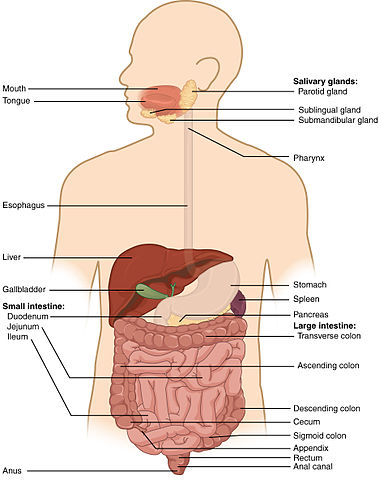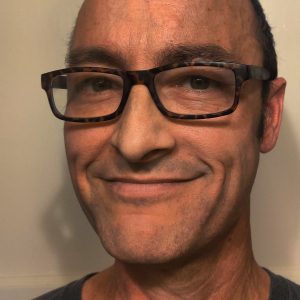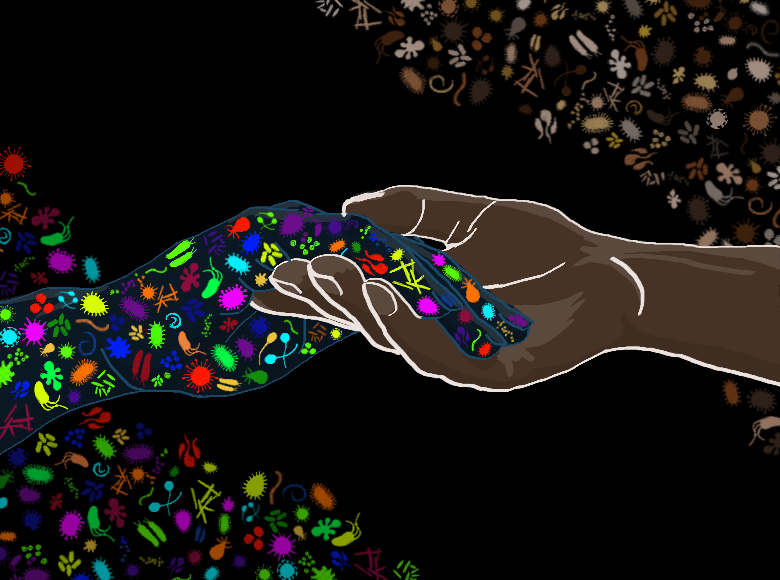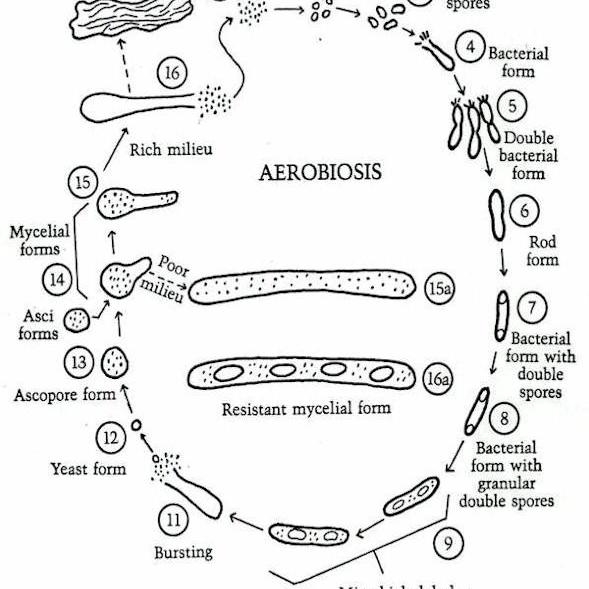I believe it is possible and that we have come to a place in time where we can accomplish this by changing just a few key behaviors in our life.
The easiest place to start is by simply chewing your food into liquid before you swallow it. Chew everything 100X if you want to understand what that looks like. The next thing to do is follow the 3 pillars.
Chew Everything 100X
Am I suggesting that you really chew EVERYTHING 100X? You should at least give it ago for a while until you get a feel for what it means to liquefy your food before swallowing it. This will cover a multitude of dietary indiscretions and be a significant rate-limiting factor to how many calories you will be consuming. It will allow you the ability to sense that you are actually full before you eat too much. Do this along with the 3 pillars mentioned and linked above and you will be on the road to better health.
Welcome to my page. And in case you are wondering, here is ‘How I Eat.’
Some of you visiting here today because we met in my car. The Uber driver who shared a little about my journey back to health. Some of you might know me from my days in broadcasting from 2003 to 2012. Good to see you…8-)
My name is Michael J Loomis, and this space will be where you find a good part of my narrative and writings. At least some morsels, bits, and bitesize pieces of it, with a weightier dose of the events that cover the last few years of my life. A little about who I was, where I have been, and what I wish I would have known along the way. The only past I can change is the one in front of me. One bite at a time.
Salivary Carbohydrate and Fat Digestion
The following is adapted from The Life Sciences Health System by T.C. Fry
Disaccharides and polysaccharides must be digested before the body can use them, while monosaccharides do not require digestion. For this reason, as well as for other reasons (to be discussed in depth later in this lesson), our best source of carbohydrates is fruits. Fruits require much less of the body’s energies and render primarily monosaccharides that, as stated, need no digestion. Digestion is both a mechanical process (chewing) and a chemical process (enzymic actions). The class of enzymes that hydrolyze carbohydrates are broadly known as carbohydrases.
While the digestion of all types of foods (proteins, carbohydrates, fats, etc.) begins in the mouth through the mechanical process of chewing; carbohydrates and fats are the only food types whose chemical digestion begins in the mouth.
When you begin chewing, glands in your mouth and throat begin to secrete saliva. This process can start with the sight or smell of food. The saliva aids digestion, moistens your mouth, reduces infections in the mouth and throat, and helps protect your teeth and gums. You have 3 major pairs of salivary glands:
-
-
Parotid glands, the largest, are on both sides of your face, in front of your ears
-
Submandibular glands are underneath your jawbone
-
Sublingual glands are underneath your tongue
-
Your upper digestive tract and your esophagus also contain smaller clusters of salivary glands. Saliva contains special enzymes that help digest the starches in your food. An enzyme called amylase breaks down starches (complex carbohydrates) into sugars, which your body can more easily absorb. Saliva also contains an enzyme called lingual lipase, which breaks down fats.
Here an enzyme known as salivary amylase or ptyalin, secreted by the parotid glands, is mixed with the food during the chewing process and begins the conversion of glycogen, starch, and dextrins into the disaccharide maltose. What happens when the starches, dextrin, and glycogens that were not converted to maltose in the mouth and what happens to the maltose when these carbohydrates reach the stomach depends upon several factors—what other types of foods are eaten with the starch, how much food is being eaten and how fast, the emotional condition of the eater and the condition of the eater’s digestive system. If a relatively uncomplicated starch such as potatoes or yams is eaten alone or with nonstarchy vegetables, and no proteins (as meats, cheese or milk, or even nuts or seeds or acids (as tomatoes, lemon or lemon juice or vinegar—as in salads or salad dressings) are consumed with the starchy food, salivary amylase (ptyalin) can and will continue the digestion of starches and dextrins in the stomach for a long period. For thorough digestion and consequent good health, this continuation of starch digestion by ptyalin in the stomach is a necessity. Therefore, for good health, it is important to consume starchy foods at separate meals from protein foods and acids.
Briefly stated, ingestion of protein foods causes secretion of hydrochloric acid in the stomach, and hydrochloric acid destroys ptyalin; that is, it destroys the amylase activity and substitutes acid hydrolysis. Physiology texts state that “if this acid hydrolysis was continued long enough it could reduce all the digestible carbohydrates to the monosaccharide stage. However, the stomach empties itself before this can take place.” The acids of tomatoes, berries, oranges, grapefruits, lemons, limes, pineapples, sour grapes, and other sour fruits and the acid of vinegar will, like hydrochloric acid, destroy our only starch-splitting enzyme, ptyalin. Therefore, these foods also inhibit starch digestion. For good digestion and consequently good health, acids should not be eaten at the same meal with starches.
Another factor that can impair salivary starch digestion is the drinking of water or other liquids with or too soon before or after meals. Water or other liquids do not aid in the digestion of foods. On the contrary, they interfere with digestion by diluting the digestive juices and causing them and their enzymes to be passed through the digestive tract too quickly for digestion to occur. To summarize this aspect of starch digestion, taking proteins, acids, water, or other liquids with starches interferes seriously with their digestion by the salivary amylase, ptyalin. This first stage of starch digestion is of great importance because there is a great likelihood that the food will be acted upon by bacteria and ferment before it reaches the intestine where further starch digestion can take place. Digestion, rather than fermentation and its resulting toxic byproducts, is much more likely to occur soon after the food is put into the mouth than further along in the digestive tract.
From the above, you can see why thorough mastication of food is so important when starches are eaten. No one who seeks health should eat starches in a hurry, nor should they have them with a beverage or with proteins or acids, for good digestion of foods is imperative for good health. A special note should be made here about glycogen—animal starch. Glycogen should not be consumed by health seekers because much disease results from the ingestion of animal flesh and animal products. Suffice it to say that glycogen ingested cannot be digested in the stomach because, of the hydrochloric acid that will be secreted to digest the protein, which is the primary nutritive component of foods that contain glycogen. Therefore, whatever glycogen that is not converted to a disaccharide by the salivary amylase, ptyalin, must be converted in the intestine. The likelihood of the glycogen reaching the intestine without fermenting before it can get there is small. This is just one of the many hazards of consuming animal flesh and animal foods. For a fuller treatment of this Life Sciences Health system visit https://terrain.wiki
The term “holobiont” literally means the host living along with other species of bionts as a single entity, in other words, the interaction of the host with the microbiome. I was driving people around one day(Uber) and the following came to mind. A little science, a little fiction, hey…My first science fiction work. Enjoy. It’s short.
I Holobiont
by Michael J. Loomis
90% of my cells appear like something not quite human; similar to other stuff in nature. Like things that live in the topsoil. I know I am made in the image of my creator; my body is not my own. Some 99% of my body’s DNA appears to not be human, yet it is, and perfect in every way, forged in the image and likeness of my creator.
Image Credit: Helen Spence-Jones – shorturl.at/bjCN4 wikimedia
We come from the dust of the earth and will return to it because dust is what we are. It is literally the essence of who we are. We are made at the pleasure and in the image of our creator who crafted us out of itself, the dust of the earth. We were created in a sense to be a garden. A garden or habitual habitation of life, and that thing we call you, me, us, and we are the sum total of all that life within that garden; our body. And all these things are an orchestra by which our consciousness makes beautiful bio-mechanical jazz. And our soul; the symphony born out of our creation; our consciousness.
When the time came, the Potter reached out and formed us; earthen vessels. The creator is the potter, and we are the clay. The creator filled us with the breath of life, and communication began; consciousness. It was a whisper at first but became a still, small voice in chorus; as all of the processes of this new creature began working in harmony, quorum was being achieved. First, amongst individuals but also amongst species and even across kingdoms; communication then fulfilled its role; our consciousness.
You see, this body is a home, but it is not my own. It is ours by which together we live and move and have our being. It is a garden that we are steward over, and our role is to attend to this garden, for we have been given dominion over it.
This is the direction I am currently heading. Truly we are Legion in one sense…For we are many, but originally all from one. A stem cell that began its life in our bones. In our marrow. And from the one comes many. And all can communicate instantaneously because they are all of the same stock. They are all Stem.
Further Reading: The holobiont as a unit of selection
Further Reading: Holobionts as Units of Selection and a Model of Their Population Dynamics and Evolution– PDF
There are a few links to the left where you can find my morsels of research and data gathering for my upcoming publishing adventures.

One of my calculable goals is to help people better understand one of the simplest things that can be done to improve your overall health. Simply chew more. Even if you don’t change what it is you are putting in your mouth, change what you do once it’s in there and time will take care of the rest. However, I must warn you that you will likely also find yourself wanting to change what it is you are putting in there over time as well.
Within this space I hope to do many things. One of them is to reawaken the spirit of a gentleman by the name of Horace Fletcher, also known historically as, “The Great Masticator.” He preached:
Fletcher and his followers recited and followed his instructions religiously, even claiming that liquids, too, had to be chewed in order to be properly mixed with saliva. Fletcher argued that his mastication method will increase the amount of strength a person could have while actually decreasing the amount of food consumed. Fletcher promised that “Fletcherizing”, as it became known, would turn “a pitiable glutton into an intelligent epicurean.” Adapted from~Wikipedia
Fletcher was an intelligent man who had many creative ideas that were healthful, but as with many, he struggled with moderation.
Unfortunately, Fletcher carried his ideas to such extremes that he starved himself to death. First he ate only potatoes, cornbread, and beans and on rare occasions, eggs, milk, and fish balls made mostly from potatoes. He decided that breakfast was unnatural, so he ate only one meal a day. He then decided that humans have to fast several days a week. He felt that hunger was caused by previously overeating. He then decided to spit out all the food that was left after extensive chewing has taken out all the flavor from his food. He then took in only liquid soups and developed extensive tooth decay and massive constipation.
At age 69, he was swallowing almost no fiber, so he had no bowel movements and was so constipated that his belly pushed up against his chest to compress his lungs and make him so short of breath that he couldn’t walk up a flight of stairs. He was now in a starvation mode in which he was deficient in essential nutrients that impaired his ability to kill germs and he died of pneumonia in 1919.
Clearly Horace Fletcher took himself too damn seriously. Everyone learns from their mistakes. Wisdom is learning from others mistakes as well. Thank you Mr. Fletcher.
Directly below is an answer to a question about water posted to a friend of mine on Facebook that in my humble opinion is possibly an explanation, though a guess on my part, of what happened to Horace Fletcher. I have lot of respect for the gentleman but it saddens me that he likely died from simple error combined with a little too much zeal.
I would really like to think that he was on to something that really never gained much traction. I really don’t know what possessed me to become such a voracious chewer. I just knew it was a change I needed to make. I guess my body in its infinite wisdom wanted that to be a part of its existence so much that it overrode my will on the subject.
I began fletcherizing my food almost 4 years ago now. I feel it was the best thing I ever did for the eating component of life. To me it just makes sense. It’s like juicing EVERYTHING.
How should I drink water?
We’re too focused on cellular hydration when it is based on the hydration of our bowels. That is, before your cells will become fully hydrated, your bowels need to be sufficiently hydrated and functioning optimally.
We can only successfully rehydrate our cells if our bowels are hydrated. Bowels first; cells second.
Sipping water goes to our bloodstream, and to our cells, without ever hydrating the bowels – fighting a losing battle as the body will attempt to create more mucous to flush the bowels with the little resources it has.
As the ability to dilute toxins decreases, our inflammatory response increases as does the thickness of our mucous, which makes it nigh impossible to mobilize nutrients and dilute and eliminate toxins.
If we drink a pint or more, it flushes our bowels, which in turn eliminates the body’s need to compensate for dehydrated bowels – which allows our cells to catch up with their hydration needs.
On an exclusively ideal diet and lifestyle, our bowels are always well hydrated (once we’re healed), so our needs are different – to the point where we can maintain hydration on juicy fruits.
I know very few people who are actually living this way – I have for extended periods of time and have proved it to myself (thriving on oranges and lettuce alone).
-Fred Kovalyov – Haven for Humanity


